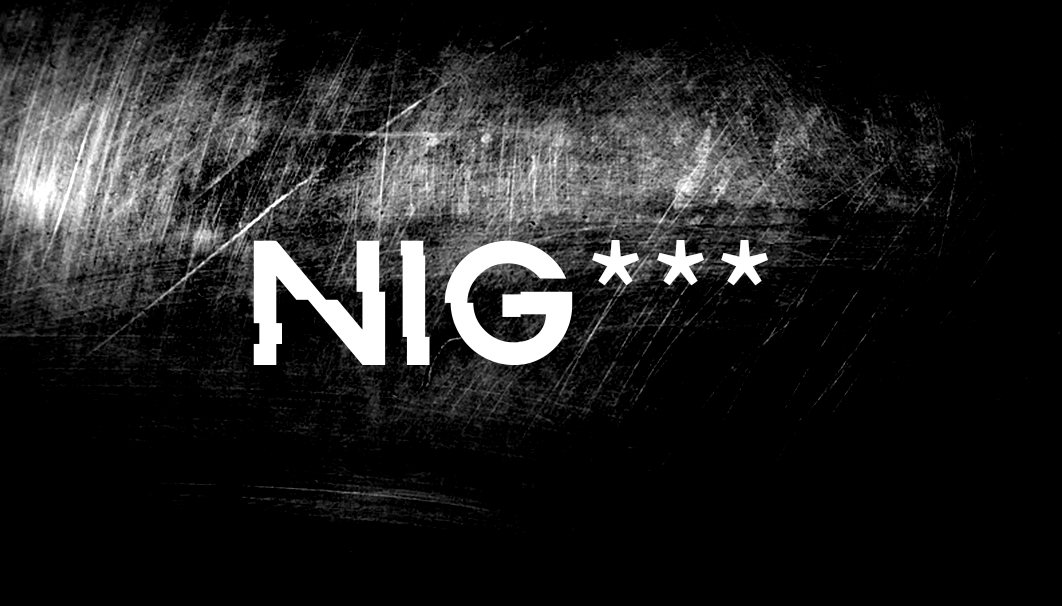The controversy surrounding the N-word has been a topic of debate for years. Yet given the use of the word among non-Black students and Black students alike, there are still opposing sides to the usage of this word. Some people think this word is just a word, while others believe the history behind it makes it so much more than a group of letters bunched together.
The origin of the N-word goes all the way back to the history that the Black community has constantly been reminded of: slavery.
Initially, the N-word started as “Nigger”. Generations later, the Black community changed the term into an endearing term for their friends, “Nigga”, making it equivalent to “Bro” only when used by and among Black people.
Freshman Kenya Perryman explains that to her, as a Black student, saying the N-word is a way of taking back her power from the years of racism and discrimination inflicted on her race.
“Us reclaiming that word and using it positively with each other within our own community just shows how we can take something negative, positive and empower and lift ourselves up even when we know we are facing challenges,” she said.
The origin of the original term “Nigger” came from the Latin word for “black”, niger. When introduced to English speakers, this word became “negro”, which many explorers classified Africans as. As “Nigger” is closer in association with the pronunciation of the Latin word “niger”, Englishmen would often clown foreign speakers by using the word “Negro” instead.
Generations and centuries ago, this word was used as a degrading term for the ancestors of the Black community, but now, it’s used casually among friends. The contradictory meaning behind this word is part of the controversy that surrounds it as non-Black individuals using this word is extremely offensive to the community and is seen almost as an equivalent to how slave owners referred to their Black slaves.
Despite this, the usage over time of this word has increased significantly from the 1800s to the 2000s. The reason for the increase in the usage of the word could be its shifted connotation among the Black community. Still, it is increasingly obvious, not just in the school community but across America, that the N-word is never strictly used among the Black community.
“I see the use of this word in everyone, to be honest, but usually I think it’s used a lot in the Hispanic community, as well as the white community, as well as the Asian community,” Perryman said. “A lot of people that are not Black use the N-word.”
Though it is an unspoken rule, using the N-word without being a member of the Black community is taboo. The school’s number of Black students is incomparable to the number of students from the Hispanic or Latin American community. Nevertheless, the usage of the N-word among usually male students from the Latin American or Hispanic community (usually referred to as “Cholos”) is an issue that no administrator can seem to cease.
“I feel disturbed when non-Black students use this word because I don’t get the hype that people get with the word,” Perryman said. “I think that people that aren’t Black using the n-word see it as just another word, which is not the case. So hearing them say the n-word is like they don’t understand the weight that that word has and just throwing it into conversation is just highly disturbing.”
It’s not just members of these certain communities abusing the use of the word. Many other students of multiple races think the usage of this word makes them cool, or that the word doesn’t hold any significant meaning. But it’s evident that this isn’t true.
“I think people say the word because it is one of the big words a lot of parents tell their children not to say when they are kids and because these students want to show that they are cool or take a step in a different direction, they say the word to feel better and give themselves power,” Perryman explained.
Many students pay no mind when they use this word even when a Black student is near or around them. Many think the reactions Black students give to these racist acts are funny or entertaining. Those who are caught quickly muster an excuse like “I wasn’t saying it to you” or “I have a pass.”
The N-word pass is an intangible idea that is commonly used as an excuse or permission to say the N-word by someone who is not part of the Black community. The rules are that only a Black person can bestow the power of the N-word pass to a non-Black person; once that happens, that non-Black person now has the power to use the N-word anytime, anywhere, however and to whomever they want for an infinite amount of times.
To many Black individuals and students, the N-word pass is simply an outrageous idea and completely invalid, and to ask a Black person for “a pass” is, in the simplest terms, extremely insulting.
“The idea of the N-word pass makes me feel terrible,” Perryman said. “I think the N-word pass holds no value and it’s annoying because giving someone a pass to say a word just to make them feel better and make themselves feel validated doesn’t make any sense. Giving someone the N-word pass would contradict everything I believe, because I think the N-word is something that oppressed Black people for years and I think giving it to someone else is allowing that oppression to creep back into society, and I hate that idea.”
One of the main reasons for the common use of the word is that there is no hard reprimand for using it. Administrators hear the word being used and occasionally scold students for using this term, but otherwise, there are no actual consequences for this abominable act of racism in practice.
Perryman explains that if the administration doesn’t want to help Black students out, the students should take it into their own hands.
“I think Black people just need to speak up and tell these people that it’s not cool,” she said. “Even though people will call Black people dramatic because they stand up for themselves, that fills me with rage.”





Charles • Dec 7, 2024 at 1:57 pm
The irony. There’s no reason for ANYONE to be saying it and for descendants of enslaved africans in America, it’s just another one of the countless reflections/symptoms of our self hatred. It’s always been offensive to our plenty in our community. Despite media portrayal, plenty of families who have deep historical ties to the term still just don’t say it and our rare elders who did use it are usually appalled at how we use it around outsiders to our culture these days. Think about most of the full sentences and song lyrics where the term is used (often for other people’s enjoyment) and try to honestly tell me someone “reclaimed it”. We’re just doing the work of demeaning ourselves for other people and selling it for them to enjoy amongst themselves as they rap a long about killing “broke n words” in their cars with their friends, impersonate Samuel L Jackson, etc.. 😂 Anyway. there’s absolutely no reason for African immigrants or their children to be saying it outside of voluntarily participating in ignorance just to fit in. It’s just as offensive , weak minded, and cringe as any other immigrants saying it.